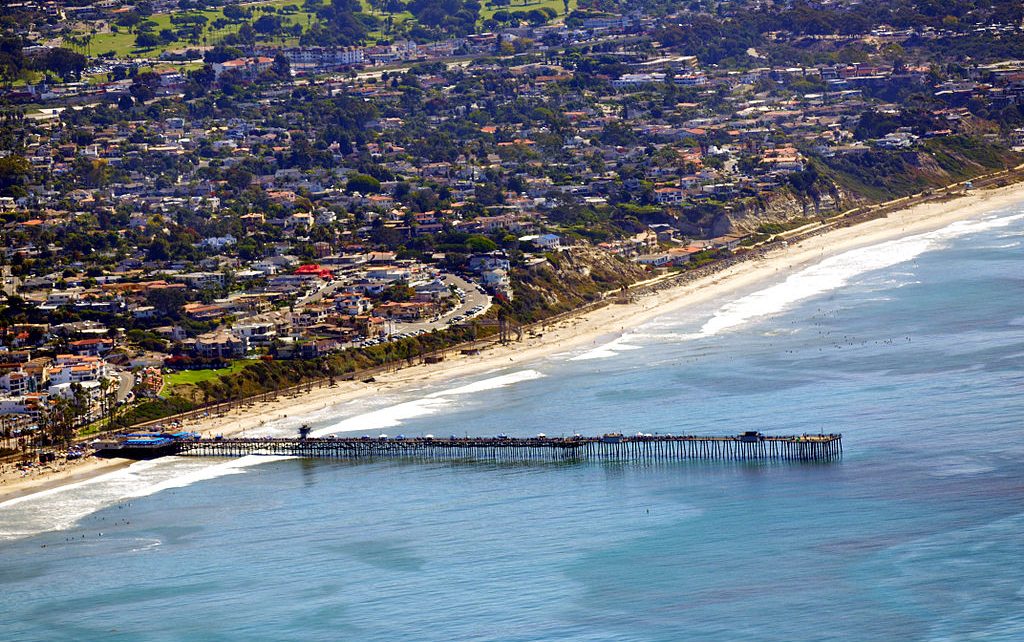
San Clemente, CA
San Clemente Employs Temporary Solution to Curb Homeless Encampments
Coastal community trying to address vagrants without criminalizing them
By Michelle Mears, August 30, 2019 2:14 am
As the homeless crisis in California continues to grow, one city in South Orange County is tackling the issue with disputable success. San Clemente, a small beach town believes they found a temporary solution to curb the homeless encampments plaguing the city. The solution was city council passing an ordinance designating one area for homeless to camp. The ordinance gave authority to Orange County Sheriffs to offer vagrants the option to move to the site or face legal action. However, not all residents are happy with the city’s decision to fund and manage the operations of the facility.
Residents in San Clemente were outraged when the homeless started to camp in random spots throughout the community and they had reason to be concerned. Orange County as a whole has one of the largest homeless populations in the state with nearly half unsheltered. A 2019 county report listed approximately 3,700 individuals living on the street and in vehicles, up from the approximately 2,400 in 2017. In addition, another 1,300 people experiencing homelessness were counted at shelters, down from 2017. However, volunteers involved in the 2019 count fear the homeless count is even higher, that recent sweeps by local law enforcement dispersed communities of people experiencing homelessness to avoid citation or arrest.
Encampments in Anaheim and nearby Santa Ana recently grew out of control and took over river beds and parks meant for the taxpayers to enjoy.
Not all residents are happy about the designated campsite which is nicknamed, “The Pit.” They have also have expressed their anger over the cost of the cleanups.
The campsite located on Avenida Pico is staffed with security guards and monthly clean up crews to keep a handle on health and sanitation issues.
Assistant City Manger Erik Sund said the monthly cleanup expense ranges from $5,000 to $10,000. Resident Tanya Carter said on a San Clemente facebook page, “Why can’t they clean it up themselves if they want to stay there? How much more is really going to get done for them? What are they doing for the city? Besides taking the taxpayers money and stealing from people.”
“For liability reasons we as a city can not force those residing in the campsite for homeless to clean up after themselves,” Sund responded.
The next clean up is scheduled for Friday, Aug. 30 right before Labor Day Weekend.
County Supervisor Lisa Bartlett wrote in a letter to San Clemente, that the county supports cities who find ways to enforce their anti-camping ordinances.
Assistant City Manger Sund said, “We had to create a designated camping site for the homeless in order for the Sheriff’s Department to enforce the anti-camping laws elsewhere in the community.”
While some residents remain upset about the homeless situation, a crowd of close to 200 people who attended a city council meeting in June cheered when the council passed the ordinance designating the city-owned lot as the town’s official homeless camp.
According to Sund, the camp is temporary as the ordinance expires in June 2020.
“We need time to address current litigation surrounding the homeless as well as explore what options we have as a city to address the issue to avoid future litigation,” said Sund.
The city of San Clemente joined the Amicus Brief that will heard before the Supreme Court regarding the Martin vs City of Boise. The Boise case, which was heard in the Ninth Circuit Court of Appeals in April, set precedent on how cities in the Western U.S. can enforce laws about sleeping in public. The Ninth Circuit ruled that the “Cruel and Unusual Punishments Clause” of the Eighth Amendment precludes the enforcement of a statute or ordinance prohibiting sleeping outside against homeless individuals with no access to a shelter. The Court said, “So long as there is a greater number of homeless individuals in (a jurisdiction) than the number of available beds (in shelters), the jurisdiction cannot prosecute homeless individuals for involuntarily sitting, lying, and sleeping in public.”
Many cities are interpreting the current ruling to mean that unless there is enough shelter space for the homeless population of a city, officials can’t enforce anti-vagrancy laws or prohibitions against camping in public parks or sidewalks. The ruling also says the court can’t force cities to build adequate shelter space or homeless housing, but it can make it unconstitutional for them to criminalize homelessness until that burden has been met. The ACLU has been reported saying, “Kicking the homeless out of public spaces is cruel and unusual punishment.”
Other cities like Portland, and San Francisco are also adjusting their policies by trying to designate public parks for the homeless camps.
In the meantime, the city of San Clemente has had 71 people reside in their homeless campsite in August; it can hold up to 96.
The city recognizes that residents are not happy with the location and some are concerned about the value of their homes being affected, but Assistant City Manger Sund wants residents to understand the campsite is a temporary, workable situation, to a long term solution.





4 thoughts on “San Clemente Employs Temporary Solution to Curb Homeless Encampments”